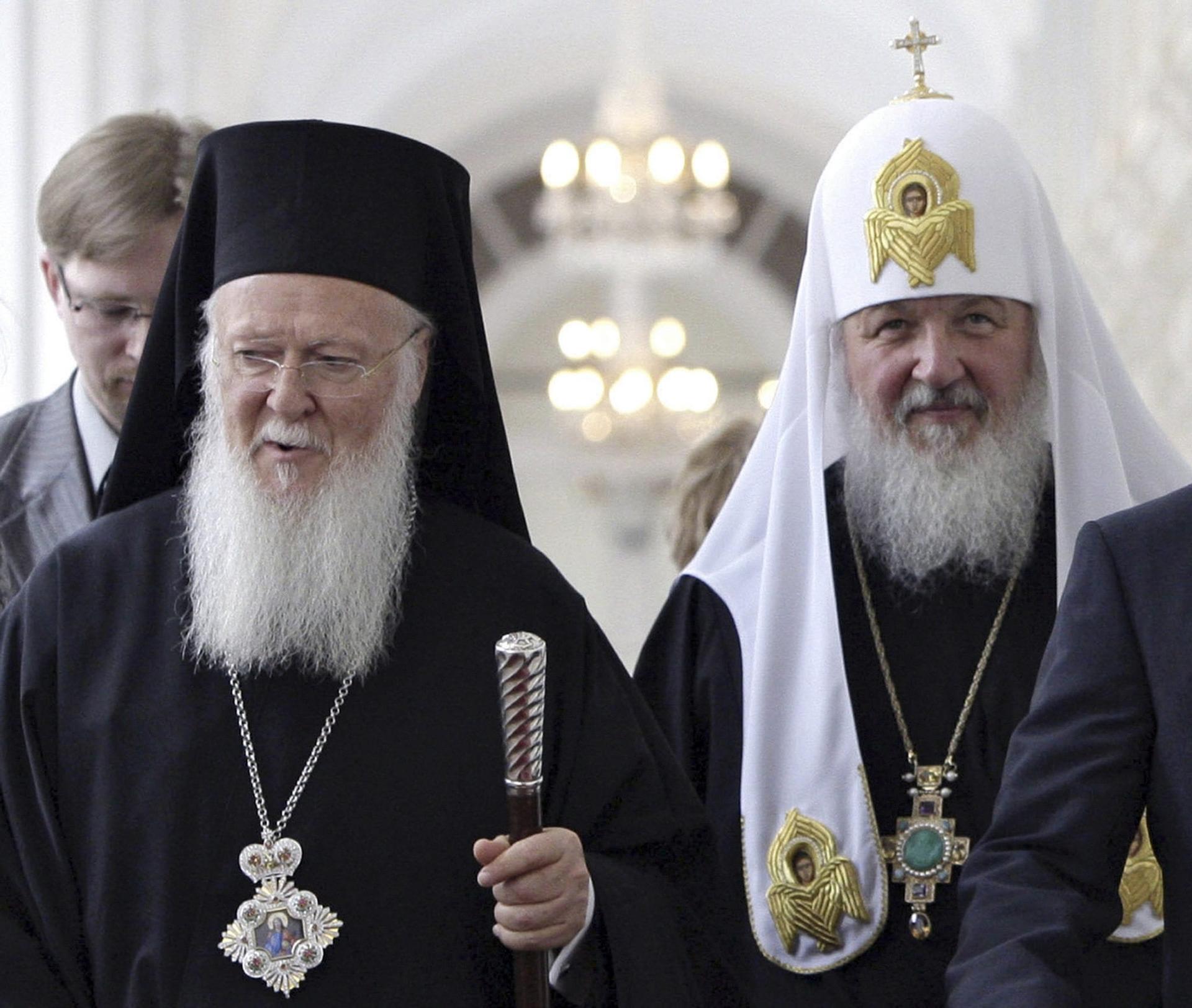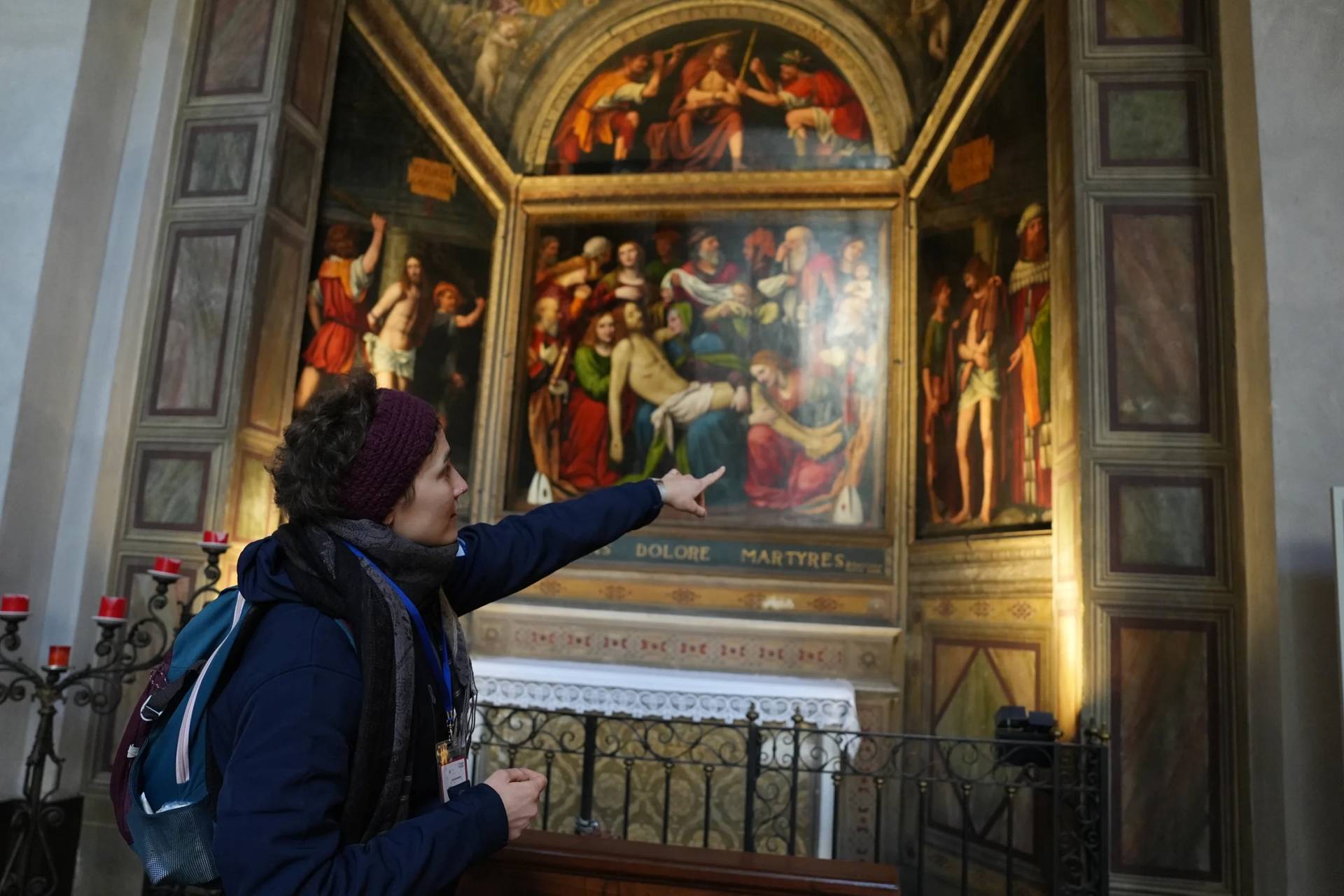MOSCOW — A historic attempt to bring together all leaders of the world’s Eastern Orthodox churches for the first time in more than a millennium has stalled after the powerful Russian church and three others pulled out at the last minute over disputes ranging from the seating plan to efforts to reconcile with the Vatican.
The Holy and Great Council, set to open Sunday on the Greek island of Crete, was to be the first meeting of all Orthodox leaders since the year 787, when the last of the seven councils recognized by both Orthodox and Catholics was held.
The meeting is still on, but with the Russian Orthodox Church and three others staying away, its pan-Orthodox aura has faded.
Istanbul-based Ecumenical Patriarch Bartholomew I, considered “the first among equals” since the time when Constantinople was the seat of the Byzantine Empire, has been the main driving force behind efforts to bring together the leaders of all 14 independent Orthodox churches.
The gathering, for which preparations began 55 years ago, was meant to promote unity among the world’s more than 300 million Orthodox Christians. But in recent weeks, differences that at first seemed minor escalated as the date for the meeting approached.
The Rev. John Chryssavgis, a spokesman for Bartholomew, said the 10 patriarchs attending the council met Friday and issued a final plea “even at the 11th hour” for the other churches to attend, saying whatever issues they have will be examined.
But he added that the council will go on without them, and organizers say the decisions made by the remaining 10 will be binding — a claim certain to be rejected by Moscow and the others.
Russian Patriarch Kirill reiterated Friday that his church would not attend, saying in a message to the council that he considered the Crete gathering a preparatory session for a synod that will unite all the churches “without exception.”
“Our prayers will be with you in the days of the work ahead of you,” he added.
The argument is certain to further fray the brittle relationship between many of the churches.
Unlike the Roman Catholics, the Orthodox churches are independent and have their own leadership. They also have different priorities, with some in recent years becoming more inward looking and nationalist, while others have turned more liberal as they try to appeal to a more globalized flock, which has been growing distant from what is perceived to be a conservative faith clinging to centuries-old traditions.
The Council was to be an important step not only to show a unity of cause, but to rekindle interest in the faith among an often disparate community of believers scattered in small churches around the globe.
But at the heart of the matter is a struggle for spiritual influence over the world’s Orthodox faithful between the large, rich and dynamic Russian church, which represents more than 100 million faithful, and the older but far smaller Ecumenical Patriarchate headquartered in predominantly Muslim Turkey.
“The Russian Orthodox Church and the churches allied with it are on the rise,” said Roman Silantyev, a Moscow-based scholar, and “can afford to resist any compromise.”
Andrei Desnitsky, a Moscow-based author and commentator on religious affairs, said the rift reflected long-running tensions between the ecumenical patriarchate and Moscow.
“Any serious issues related to Orthodox policies reflect a soft rivalry between the two patriarchates,” he wrote in a recent commentary.
One of the first disagreements was over seating. According to some reports, the Russian church strongly opposed a plan for the ecumenical patriarch to take a presiding seat during the council session, seeing it as an attempt to promote primacy. Instead, Moscow and the Bulgarian Orthodox Church reportedly insisted that the participants sit at a round table.
While the seating issue was settled, other disagreements were more difficult to deal with.
The Bulgarian church was the first to drop out, citing a lack of “particularly important” topics on the agenda, the seating plan, and the handling of documents.
The Damascus-based Antioch Patriarchate said it would not attend unless an ongoing dispute with the Jerusalem Patriarchate was resolved ahead of the council. The two broke relations over the jurisdiction of the Muslim Gulf state of Qatar. The Georgian Orthodox Church cited a doctrinal issue to pull out.
Some observers say the three may have been influenced by the Russian church. Because of an agreement that all council decisions should be reached through consensus, the Moscow Patriarchate insisted on a postponement, arguing that the absence of even a single church would make that impossible.
Chryssavgis said Bartholomew could not postpone the council and unilaterally overturn the collective decision to meet.
“Bartholomew is not the pope, he can’t just decide,” he told the AP, adding that it can’t be ruled out that the 10 churches present could vote for a postponement when they gather.
Some in the Russian church have been deeply suspicious of the ecumenical patriarch’s intentions, fearing that the council could pave way to closer ties to the Vatican, Protestants and others, anathema for conservatives in that institution.
“There are fears that the Orthodox will surrender their positions in the face of the Catholics,” Silantyev said. “There are a certain number of priests and some bishops who share that view.”
“It’s a confrontation between liberals and anti-liberals, and Constantinople represents the liberal side,” Silantyev added.
The “Great Schism” split Christendom in 1054 over the Vatican’s power. Despite a landmark meeting between Pope Francis and the Russian patriarch Kirill in Cuba, many in the Moscow Patriarchate and other Orthodox churches do not want any rapprochement with the Vatican.
Some conservatives in the Russian church have been critical of Kirill’s decision to endorse a set of compromise documents prepared for approval by the council, including one on relations with other Christian churches.
“The Russian church’s leadership has found itself in an awkward position and preferred to dodge attacks for taking part in the project initiated by its Constantinople rivals, posing instead as keepers of Orthodox unity,” Alexei Makarkin, a deputy head of the Center for Political Technologies, a Moscow-based think-tank, wrote recently.
The Moscow Patriarchate has tried to downplay the rift, saying that differences could be settled and a council be held at a later date.
“We aren’t inclined to dramatize it or see it as some sort of catastrophe,” Moscow Patriarchate’s spokesman Vladimir Legoida told the AP. “We don’t see the difficulties that have emerged as insurmountable.”













